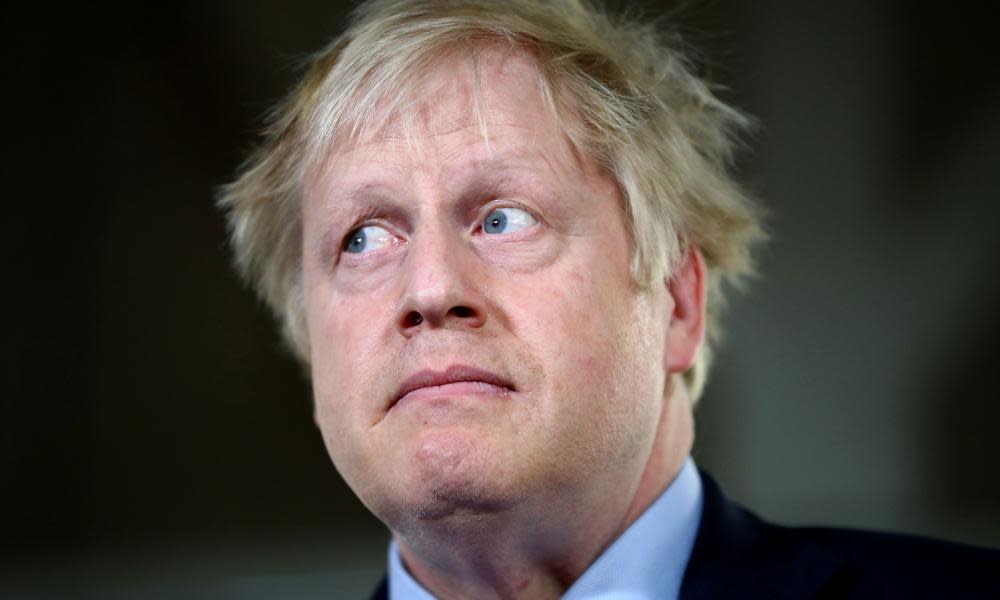Andrew Sparrow's election briefing: no tax rises and no interviews either, says PM

Johnson refuses to accept tax burden will rise under Tories
Boris Johnson has refused to accept that the overall tax burden would rise under Conservative manifesto plans – despite the fact that the party says so quite openly in its costings documents. He was asked about it after the Conservatives released a briefing saying that a Tory budget in February would “cut taxes for hardworking families”. When reporters put it to him that the overall tax burden was set to rise in the first Tory budget according to CCHQ’s own figures (mostly because a corporation tax cut has been abandoned, and that counts as a tax rise), Johnson claimed not to be aware of this. He told the BBC’s Laura Kuenssberg: “We’re cutting taxes on national insurance contributions and on business rates, and I’m certainly not aware of the data you describe. We’re cutting taxes. And in our first budget we propose to do more to cut taxes.”
It would have been reasonable to say there is a difference between personal taxes going down and the overall taxes going up. But he did not, and instead he implied the journalists were wrong. Later, the Conservative party had to issue what amounted to a clarification – always a sign that a media appearance has not gone smoothly.
PM declines to do pre-election interviews
Johnson has refused to commit to doing an interview with Andrew Neil. Asked about this at his Q&A, he did not say he would refuse to do the interview, but he gave the strong impression that it is never going to happen. It later emerged that he won’t do a sit-down interview with ITV’s Julie Etchingham either. Jeremy Corbyn has given interviews to both Neil and Etchingham – although both generated multiple negative headlines, which of course explains why Johnson is evading this level of scrutiny.
Brexit party MEPs go rogue
Four Brexit party MEPs said they are leaving the party and urged people to vote Conservative. They are Annunziata Rees-Mogg (whose brother Jacob is a Conservative cabinet minister), Lance Forman, Lucy Harris and John Longworth. They worry that by continuing to stand in Tory target seats, Nigel Farage’s party could be helping Labour. In November, Farage said he would not put up candidates in the 317 Tory-held seats because he was worried about a minority Labour government cancelling Brexit, and the rebel “gang of four” argued that backing the Tories everywhere was the logical extension. Farage has rejected this, claiming there are seats where the Brexit party is helping the Tories by standing. Students of Farage’s career will recall that the last party he led, Ukip, also ended up riven by splits.
Meanwhile
Johnson has insisted he will get a trade deal with the EU by the end of next year – but refused to give a “cast-iron guarantee” to that effect. In an interview on Thursday morning Sajid Javid, the chancellor, refused to rule out a no-deal Brexit happening at the end of 2020, although he said the prospect was “extremely remote”.
Scores of serving and former Labour officials have given sworn statements about antisemitism in the party as part of evidence submitted to the Equality and Human Rights Commission’s investigation into the issue.
Labour’s Jon Ashworth has pulled out of the final pre-election episode of BBC Question Time, after the programme was criticised for featuring an all-male panel.
Sign up here to receive Andrew Sparrow’s election briefing direct to your email inbox every weekday.
If you’re using the Guardian app and would like a daily alert to Andrew Sparrow’s election briefing, click here and select “get notifications”.

 Yahoo News
Yahoo News 
